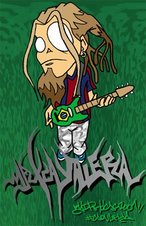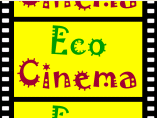
Over and Over
People talkin 'bout solutions, over and over
'Bout how we need a revolution, over and over
I was talking 'bout ecology, over and over'
Bout how we'll be saved by technology, over and over
While the cat next door spends all his time
Trying to think up new antisocial crimes
I said no, I said hang on a minute now
I set let me outta hereI said no, no, no
People talking revolution, over and over
About a mass execution, over and over
Well I was working in a factory, over and over
Just trying to make it satisfactory, over and over
But all these inclinations toward manic frustration
I want my vaccination against castration
Vietnam, what a sexy war
Uncle Sam's a pimp, wants us to be whores,
I said no, I said I can't take much more of this
You better let me outta here
I said no, no, no
Oh you see I need a release for my frustration
Oh don't you see I can't hold my aggravation
Oh...no, no, no, no
I see people dyin', over and over
Why don't I sit around crying, over and over
I see people taking, over and over
Why don't I sit around waiting, over and over
The cop on the street wants us down on our needs
The president says we've got to have peace
The other cat says we need our liberation
The hippies telling us we're in the love generation
I said whoa, I said hang on a minute now
This can't go on much longerI said no, no, no
Over and over, over and overOver and over, over and over
This song is about the confusion and frustration the information and news avalance by Mass Media cause and the resulting passiveness and inactiveness of people. There is also a small reference to ecology, as one of the bad news we always hear by the Media, something that shows us that the environmental crisis was a quite popular theme of concern and anxiety in early 70s .
Poison
The partisans not the artisans
Are doing their dirty show
But i ripped my pants
Doing some dance
That i learned in France
And they think there ain'tnothin' to know
Used, abused
Locked up, beaten and fined
But i got free
Copped a plea
And i can see
That there ain't no freedombell gonna chime
This time
Truth and loveare my law and worship
Form and conscience my manifestation and guide
Nature and peace are my shelter and companion
Order is my attitude
Beauty and perfection
Are my attack
False faces
Fast company
A night of thrills
With no jealousy, no poison
Nobody's tool
Will be a public fool
To manipulate the masses
Who lie and cheat
And eat their meat
And think it's sweet
While the rest all clean their glasses
In status classes
This song has many hints against violence, and especially the bold part make a connection of love, peace and nature as some of the most gentle values to follow
you can hear in youtube MC5's highlights
kick out the jams
ramblin’ rose
04 October, 2007
MC5, Album: High Time 1971
Αναρτήθηκε από
candiru - stratis aigaiopelagitis
στις
11:00 AM
![]()
Ετικέτες 70s decade, hard rock, MC5
Subscribe to:
Post Comments (Atom)




2 comments:
MC5 was a left-orientating political band, found themselves in the turbulence of 1968-1969 riots against american politics and Vietnam war and have a co-operation with the founder of White Panthers Party John Sinclair, a party which supported Black Panthers.
We read in wikipedia:
John Sinclair managed the hard-edged proto-punk MC5 from 1966 though 1969. Under his guidance the band embraced the counter-culture revolutionary politics of the White Panther Party. During this period, Sinclair booked the "The Five" as the regular house band at Detroit's famed Grande Ballroom in what came to be known as the "Kick out the Jams" shows. He was managing the MC5 at the time of their free concert outside the 1968 Democratic National Convention in Chicago. The band was the only group to perform before baton-wielding police broke up the massive anti-Vietnam war rally, calling it a riot. Eventually, the MC5 came to find Sinclair's politics too heavy-handed. He and the band went their separate ways in 1969.
MC5, Jefferson Airplane and some others bands have been mentioned as examples of the musical expression of a radicalization of the american youth movement of the sixties. In 1968 and 1969, there has been a shift from the peaceful hippies towards more aggressive protests concerning Vietnam War and other aspects of the counterculture politics. Many people supported the choice of the Black Panthers Party to defend itself "by any means nessecary", which means that the memebers didn't reject the use of violence. John Sinclair and White Panthers Party identified with this. It is characteristic that MC5 "would appear onstage toting unloaded rifles, and at the climax of the performance, an unseen "sniper" would shoot down Tyner". They also established an association with the radical group "Up Against the Wall Motherfuckers". Their first album contained an extended cover of John Lee Hooker's "Motor City is Burning" wherin Tyner praises the role of Black Panther snipers during the Detroit Insurrection of 1967.
Despite the fact that MC5 split with Sinclair in 1969, the band expresses the more violent tendencies of the youth movement and not those "precursors" of the green movent. However, during those days things were not as clearly deliminated, and many "hippie" or "non-violent" musicians like John Lennon, Graham Nash, Neil Young and others supported for example the release of Sinclair from the prison (he was jailed because he gave two joints to an undercover FBI agent!) or the release of Bobby Seale and the Chicago seven. However, at the end of that decade things got violent, and leftist revolutionary groups like the Weathermen emerged, influenced like the Black Panthers Party by Maoist ideas, flirting with terrorism.
According to my opinion, this move towards violence marked one of the causes for the decline of the youth movement.
Post a Comment